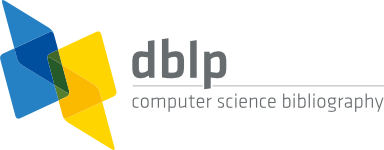Digital Library
Vol. 3, No. 2, Dec. 2007
-
Kouichi Sakurai, Kazuhide Fukushima
Vol. 3, No. 2, pp. 54-63, Dec. 2007
 https://doi.org/
https://doi.org/
Keywords: Mobile Security, Mobile Malware, Mobile DRM System, Mobile WiMAX Security, Group Key Management
Show / Hide AbstractThe high-speed mobile Internet has recently been expanded, many attractive services are provided. However, these services require some form of security-related technology. This paper outlines Japanese mobile services and exposits some mobile security topics including mobile spam, mobile malware, mobile DRM system, mobile WiMAX security, and mobile key management. -
Oh Byung Kwon, Tae Kyung Kim, Choong Rhyun Kim
Vol. 3, No. 2, pp. 64-72, Dec. 2007
 https://doi.org/
https://doi.org/
Keywords: Group Decision Making, Mobile Technology, Mobile Devices, Group Decision Support
Show / Hide AbstractMobile technology appears promising as a method to promote group performance in circumstances dependent on time, but not member proximity. However, the success of mobile technology in group decision-making situations has not yet been proven. This paper aims to see how mobile technology affects the performance of group decision-making tasks that should be resolved urgently and/or sources of idea are disconnected with on-line network. Laboratory experiment was used to investigate the effects of mobile factors on group decision-making. The results from the experiment supported the proposition that pressures of time and location play a significant role in the assessment of group decision performance measures. We found that the adoption of mobile technology to group decision-making procedures might be competitive when group decision-making tasks are urgent and sources of idea are disconnected with on-line network, even though mobile technology is not a panacea on which to depend when designing group decision-making. -
Sung-Pil Choi, Yuchul Jung, Sung-Hyon Myaeng
Vol. 3, No. 2, pp. 73-81, Dec. 2007
 https://doi.org/
https://doi.org/
Keywords: Text Classification, Mood Categorization, Information Retrieval, Feature Selection, Text Classification Application
Show / Hide AbstractIn this paper, we introduce a domain-independent classification framework based on both k-nearest neighbor and Naïve Bayesian classification algorithms. The architecture of our system is simple and modularized in that each sub-module of the system could be changed or improved efficiently. Moreover, it provides various feature selection mechanisms to be applied to optimize the general-purpose classifiers for a specific domain. As for the enhanced classification performance, our system provides conditional probability boosting (CPB) mechanism which could be used in various domains. In the mood classification domain, our optimized framework using the CPB algorithm showed 1% of improvement in precision and 2% in recall compared with the baseline. -
Kyu Il Kim, Joo Chang Lee, Won Gil Choi, Eun Ju Lee, Ung Mo Kim
Vol. 3, No. 2, pp. 82-88, Dec. 2007
 https://doi.org/
https://doi.org/
Keywords: XACML, SAML, agent
Show / Hide AbstractWeb services are the new building block of today¡¯s Internet, and provides interoperability among heterogeneous distributed systems. Recently in web services environment, security has become one of the most critical issues. The hackers attack one of fragile point and can misuse legitimate user privilege because all of the connected devices provide services for the user control and monitoring in real time. Also, the users of web services must temporarily delegate some or all of their rights to agents in order to perform actions on their behalf. This fact risks the exposure of user privacy information. In this paper, we propose secure delegation model based on SAML that provides confidentiality and integrity about the user information in distributed systems. In order to support privacy protection, service confidentiality, and assertion integrity, encryption and a digital signature mechanism is deployed. We build web service management server based on XACML, in order to manage services and policies of web service providers.









